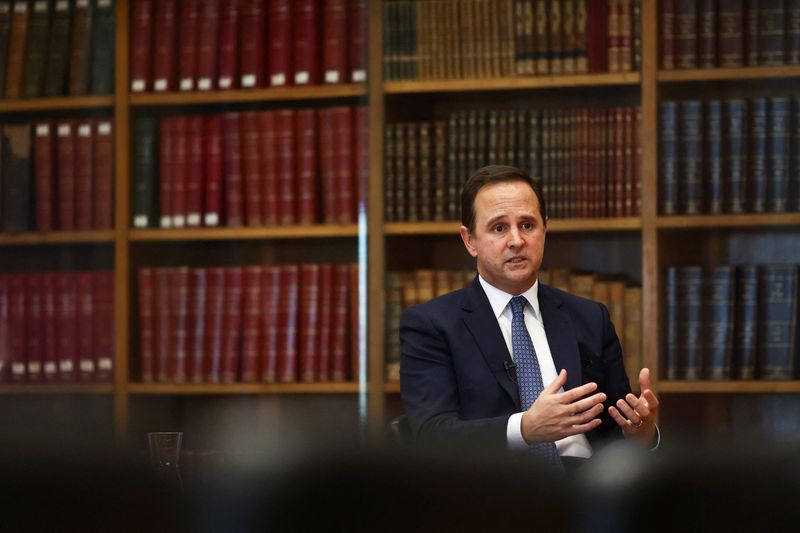By Sergio Goncalves and Aislinn Laing
LISBON (Reuters) - Portugal expects economic growth of at least 6.7% this year, beating its 6.5% forecast on the back of domestic demand and tourism, helping the country further slash one of Europe's heaviest public debt burdens, its finance minister told Reuters.
Despite a glum outlook in Europe amid high inflation and interest rates, he expected Portugal to avoid a contraction in the fourth quarter, which "could be more positive than many analysts think" thanks to an extra 2.4 billion euros ($2.5 billion) in aid for families since October to tackle inflation.
The economy should also continue to benefit from tourism as it bounces back from the COVID-19 pandemic, and tourism is now more widespread throughout the year than in the past, Finance Minister Fernando Medina said.
"Even if (quarter-on-quarter) growth is zero in the fourth quarter, we're going to have a growth rate of 6.7% in 2022, one of the highest in Europe," Medina said.
Growth accelerated to 0.4% in the third quarter from the previous quarter's 0.1% as private consumption unexpectedly rose despite inflation at three-decade highs.
While solid growth coupled with very low unemployment creates "a solid base for entering 2023", the expansion is projected to slow to just 1.3% in 2023, with private consumption almost stagnating and exports losing steam given an expected sharp slowdown or recession in major European economies.
"It's a significant slowdown...(but) it's growth. So, after a very strong year, we will continue to grow," he said, adding that it was possible to surpass those projections again.
FOCUS ON CUTTING DEBT
As the European Central Bank hikes interest rates to battle inflation, cutting public debt is Medina's "key priority" as he aims to slash it by a record 10 percentage points to 115% of GDP this year and to 110% in 2023.
That should move Portugal's debt ratio down from the euro zone's third-highest position after Greece and Italy, with one of the runners-up Spain, France or Belgium likely overtaking it, Medina said. He expects the financing conditions for companies and families to improve as a result.
Amid strong growth and high inflation, tax revenues soared by 7.3 billion euros in the first nine months, more than double the whole-year target, but the government kept the budget deficit goal at 1.9% of GDP this year, channelling most of the extra cash to aid households and companies.
The deficit would still be lower than 2.9% in 2021 and the aim is to cut it further to 0.9% next year.

Despite a worrying fast rise in rates, Medina expects Portugal to avoid a spike in bad loans of households thanks to measures such as a recent decree ordering banks to renegotiate mortgages of up to 300,000 euros for vulnerable families.
($1 = 0.9626 euros)
